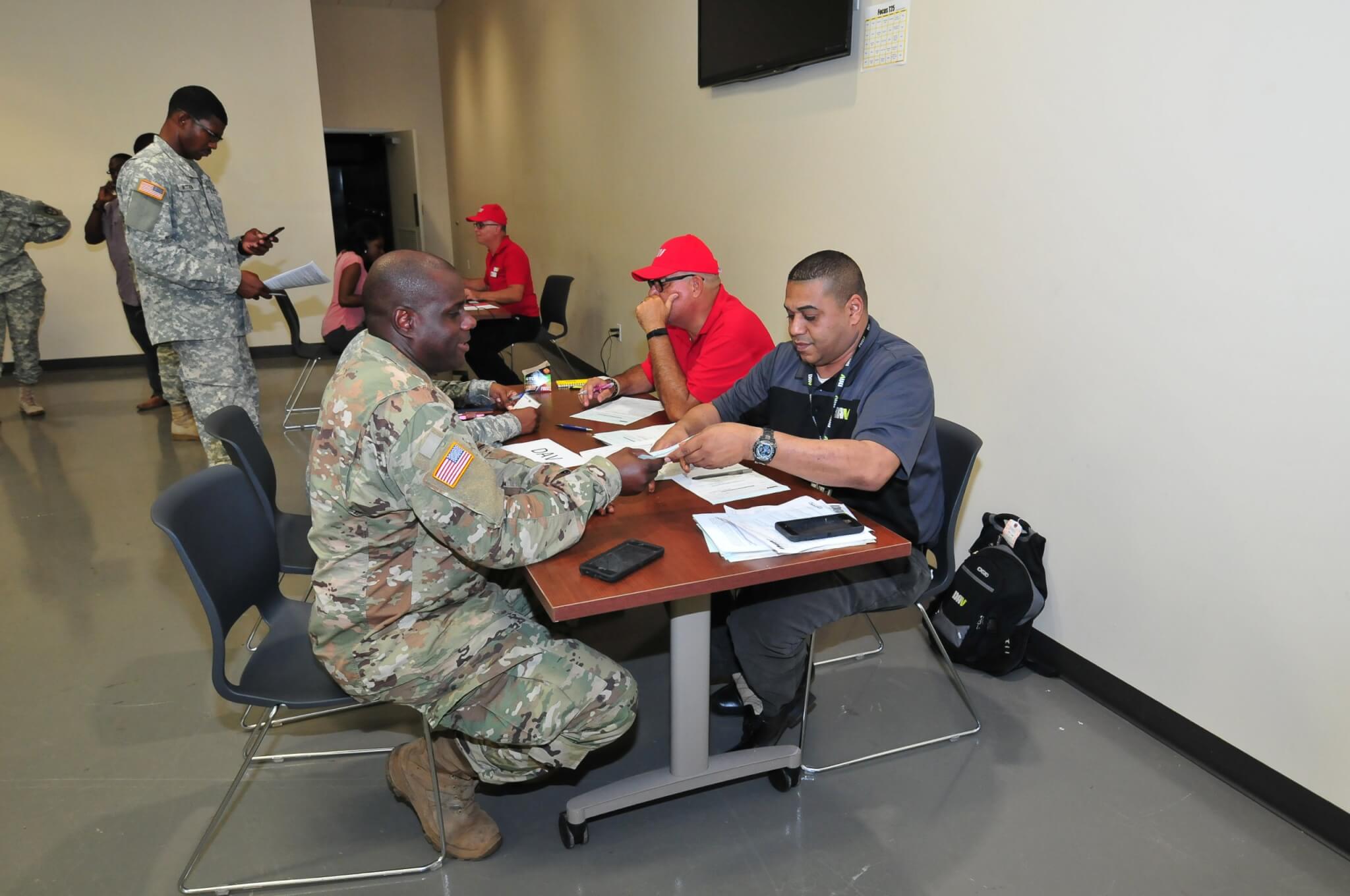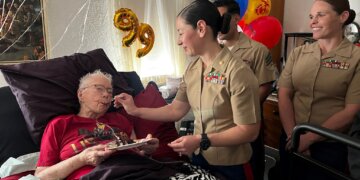Why should you use a Veteran Service Officer when filing your VA benefit claims? Quite simply because the claims process can be a bureaucratic nightmare.
And their services are free.
VSOs help veterans and their family members write and submit claims to the VA, providing them with a wealth of insider knowledge of the claims process. Accredited representatives and VSOs must pass an exam, pass a background check and take ongoing continuing education before they legally can represent a service member, veteran, dependent or survivor.
Numerous organizations such as the American Legion, AMVETS, Disabled American Veterans, Military Order of the Purple Heart, Paralyzed Veterans of America, Veterans of Foreign Wars and Vietnam Veterans of America have service officers, as do state Veterans Affairs Offices.
“A VSO is familiar with all the different benefits the VA offers,” DAV Deputy National Service Director for Training Scott Hope states. “We’re talking about compensation, pension, the Home Loan Guarantee program, the GI Bill, ChampVA, dependent benefits, employment and education benefits All the programs that encompass this huge VA, VSOs are familiar with all of them.”
Because of their broad knowledge of compensation and benefits programs, Hope says service officers help ensure veterans are aware of all benefits tied to their specific disability rating such as vocational rehabilitation and employment, education, home loan, healthcare and burial benefits. Hope notes VSOs also are familiar with state and local veteran benefit programs.
“If the DAV doesn’t have a program for something and the county veterans service office does, we can refer them back and forth,” Hope points out. “There’s a lot of collaboration and networking in the veteran community. That’s why it’s important to work with someone who knows all those points of contact.”
In addition, the Veterans Appeals Improvement and Modernization Act, which went effect this year, replaced a claims appeal process that had been in place for decades with new forms and procedures.
“The VA doesn’t do a great job when you do it wrong of telling you how you were supposed to do it right,” Hope maintains. “Knowing the up-to-date processes and being able to guide this specific veteran for a specific claim process is what we do.”
While the VA website estimates claims should be processed within three to four months, times varying based on the number of conditions claimed. When frustrations occur during the lengthy process, Hope believes VSOs typically exhibit “a lot more patience and compassion” because they typically are veterans who have been through the gauntlet themselves.
“There’s that bond when they sit down and talk,” Hope says. “A VSO is a lot more sympathetic.”
When Navy veteran Myrna Therrien separated from the Navy in 2001, she didn’t realize she could file a disability claim, but she did make sure injuries and conditions she had sustained in the service were documented in her medical record. That decision proved critical.
“Some people are in a rush to get out and they do everything really quick,” Therrien said. “But that [information] is key because when you go to the VA they are going to make sure it is documented during your physical if it is not documented anywhere else.”
Six years later, when Therrien was working in medical billing for the VA Honolulu Regional Office, she became hobbled by a lingering leg injury that dated to her time in the Navy. A VA benefits officer encouraged her to file a disability claim. She turned to the American Legion for additional assistance with her claims.
“The VSO knew all the ins and outs,” Therrien said. “Once he knew I wasn’t just trying to use the system, I really did have something going on that was serious, they will give 110% of their time. The VSO did all the paperwork. I gave him all my evidence and a couple days later it was written up and I just needed to sign it.”
While working with a VSO can smooth the claims process, Hope points out veterans must take responsibility for tracking their claims on eBenefits and reading all VA correspondence, which may contain requests for information or evidence that can derail your application if overlooked. Service members on active duty who want to jump start the claims process can connect with Transition Assistance Officers who provides benefits counseling and assistance at many military bases.
VA claim exam tips
- Attend your claim exam.
- Unless it is an emergency, don’t reschedule an exam the day before or the day of an exam.
- Make sure your nearest VA regional office and VA medical center have your current address, phone number and email information.
- Call the VA to confirm your exam time and location.
- Submit all your medical evidence by uploading it, faxing or mailing it to your VA regional office before you go to your exam.
- Be prepared to attend multiple claim exams if you’re claiming more than one disability.
- Arrive at your appointment 15 minutes early. If you are late, you may not be able to be seen.
- The VA claim exam is a medical review of your claimed disabilities, not a treatment exam, so the examiner may need only to speak to you.
- Answer exam questions honestly. Don’t exaggerate – or downplay – symptoms.
- Examiners do not make rating decisions. For claim status updates, check online at eBenefits or contact the national call center at 1-800-827-1000 or your VA regional office.
Read comments










































